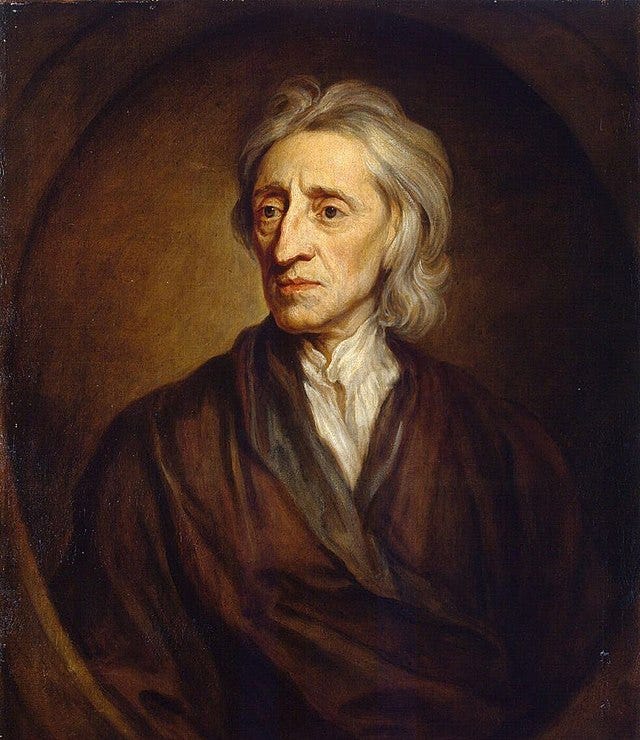VOL 37: FATHERS OF MODERN TECHNOLOGY.
Hey Friends 🤓,
Trust you all had a great week 🤗?
Today at a Glance:
Quote of the WeekHot 🔥 Tech News/Discussion of the WeekFathers of Modern Technology
Tim Berners Lee
Douglas Engelbart
Martin Cooper
ConclusionFace of the WeekBusiness & StartupsRandom FactsTweet of the Week
Quote of The Week
"Be a Free Thinker and don't accept everything you hear as Truth. Be Critical and evaluate what you believe in."
—
ARISTOTLE
Hot 🔥 Tech News/Discussion of the Week
Elon Musk Twitter Drama!!
It’s day 43 in the Elon Musk–Twitter saga—and things are getting even weirder. Today we witnessed the bizarre spectacle of Elon Musk tweeting a poop emoji at Parag Agrawal after the Twitter CEO tried to clarify the company’s procedures for keeping spam bots at bay. A short time later, Bloomberg reported that Musk had told a private conference in Miami a viable deal for Twitter at a lower price than what he had negotiated “wouldn’t be out of the question.” Well, that’s one way to communicate with investors. Not the right way, mind you.
In fact, as The Wall Street Journal has reported, the SEC is investigating whether Musk breached disclosure rules in how he initially reported his investment, similar to an FTC investigation we previously reported. And based on details in a lengthy securities filing by Twitter today, those investigators have a lot to delve into. Most notably, we learned that Musk contacted members of Twitter’s board to reveal he had bought more than 5% of Twitter nine days before disclosing it publicly on April 4.
By the time he made that disclosure—when he categorized himself as a passive shareholder uninterested in “changing or influencing the control” of the company—he had told Twitter directors he might buy the company and had been invited to join the board! So yeah, the passive category seems…ah, not quite right.
One question worth asking is whether Twitter should have disclosed Musk’s initial approach. After all, companies sometimes reveal publicly they’ve had approaches from potential buyers, often in the leadup to launching a sales process.
Source: The Information
Today’s Topic
Technology has the ability to do many things, one of which is to transform the world. It is safe to say that we are fortunate to live in a time when science and technology can help us, make our lives easier, and make us reconsider how we live our daily lives.
Throughout history, there have been notable inventors known as the Fathers of Modern Technology who have changed the world for the better. As a society, we hold them in high regard and regard them as geniuses. Today let us remember a few of the men who have made significant contributions in reshaping the IT sector through ground-breaking inventions.
Timothy Berners-Lee (born 1957)
“The Web as I envisaged it, we have not seen it yet. The future is still so much bigger than the past.” – Timothy Berners-Lee
Sir Tim Berners-Lee is a British computer scientist who is widely credited with creating the World Wide Web. Berners-Lee conceived the idea of creating the web while working as a software engineering consultant at CERN, the European Particle Physics Laboratory in Geneva.
Berners-first Lee's goal was to assist scientists share data across the Internet, which was still an unknown territory and a confusing platform at the time. However, his innovation quickly developed wings and took flight thanks to his choice to distribute the source code for free in order to make the Web an open and democratic platform for all.
Berners-Lee was born with an innate talent for computers, as both of his parents were involved in the development of the Ferranti Mark I, the first commercial computer. This led to him designing a tool capable of propelling current technology to new heights. Among his many honours, he was awarded the first Queen Elizabeth Prize for Engineering in 2013, was named a Fellow of the American Academy of Arts and Sciences in 2004, and was knighted by H.M. Queen Elizabeth in 2009.
Douglas Engelbart (1925-2013)
“The digital revolution is far more significant than the invention of writing or even of printing.” – Douglas C. Engelbart
Doug Engelbart was a computer visionary who foresaw the future. He is well-known for his contributions to the field of human-computer interaction, which culminated in the development of the Computer Mouse in 1963. Bill English, an American scientist, based his design on rebuilding the mouse on Douglas Engelbart's prototype. Unfortunately, Engelbart's patent had already expired by the time the mouse became commercially available, and he did not receive royalties for his invention.
Computers were just room-sized calculating machines that could only be accessed by one person at a time when Dr. Engelbart entered the field of computing. His groundbreaking presentation of how a mouse may be used to control a computer at the Fall Joint Computer Conference in San Francisco in December 1968 stunned the industry. He was also able to effectively demonstrate text editing, hypertext, windowing, and video conferencing at the same conference.
Even with the availability of touch screens and trackpads, he is acknowledged as one of the pioneers of modern technological advancements since his invention, the mouse is still cited as the most extensively used accessory of the previous three decades. Despite the fact that Dr. Engelbart thought up to ten buttons to be useful, the initial mouse only had three.
Martin Cooper (born 1928)
“The best technology is when you are free to do what you want.” – Martin Cooper
Looking through all of history, it would seem that the mobile phone has caused the most rapid changes in our daily life ever seen. Smartphones have altered our expectations of what’s possible, the entire world is at our fingertips instantly.
The smartphone revolution we have today all started with Martin Cooper’s contribution to the wireless communication industry in the 70s, with him being the inventor of the world’s first portable cellular phone in 1973.
In November of 1972, he along with his team of experts at Motorola Company started toiling on a prototype of the DynaTAC phone. After five months, Cooper was able to place the world’s first phone call from a mobile phone while closely followed by reporters on his way to a press conference at the New York Hilton in midtown Manhattan.
When it comes to answering the coveted question, "Who is the father of modern technology?" Cooper's name stands out more than most. This is because, as an inventor, he recognized that what people needed was the freedom provided by anywhere, anytime telephony rather than being restricted to the proximity of a car or a desk as it is with phones back then.
Martin Cooper’s original handset, popularly known as “The Brick”, was bulky, weighed 1kg, and had a 30-minute talk time before requiring a 10-hour recharge. Motorola's top management heeded to Martin Cooper's galactic vision and invested $100 million in his division, which was later fully recovered. Martin Cooper established much of the modern telecommunications industry, and his name will go down in history as the Guinness Book of Records holder for making the first cellular telephone call ever.
It’s good to know that without the Motorola DynaTac, we would not have the sleek smartphones we have today.
CONCLUSION
There have been many great thinkers throughout history who have had a significant impact on the technological revolution. Certain men, revered as the fathers of modern technology, gave life to pioneering technologies that we now take for granted in our daily lives. Today, let us remember all of these visionaries, without whom our world today would be filled with difficulties.
FACE OF THE WEEK
JOHN LOCKE (1632 –1704)
One of the first people to start building the foundations of the free society we now live in today was John Locke. He was an English philosopher and physician, widely regarded as one of the most influential Enlightenment thinkers and commonly known as the "Father of Liberalism". Considered one of the first of the British empiricists.
He lived through one of the most volatile times in England’s history, he witnessed the English Restoration, the Great Plague of London, the Great Fire of London, and the Glorious Revolution.
John Locke was a famous political theorist of his time. In 1690 he authored one of the most famous political tracts in history titled “Two Treatises of Government”. England had just gone through a period of great political turmoil, the so-called “Glorious Revolution” of 1688 in which the Catholic King James II, was overthrown and replaced by a protestant William of Orange.
The purpose of the revolution which Locke supported was not merely to substitute one king for another, but to move power away from the monarch and place it in the hands of the people and their elected representatives. This incident influenced Locke to write these three philosophies that influenced America’s declaration of independence and our modern democracy today;
All men are created equalCertain basic rights exist independent of governmentGovernment exist to protect those rights
He wrote, “The end of law is not to abolish or restrain freedom, but to preserve and enlarge freedom”.
His writings influenced many thinkers and scholars including; Voltaire, Rousseau, The Scottish Elinghtment Thinkers, American Revolutionaries etc. He is one of the three contributors to the Social Contract Theory.
John Locke is one of my favourite philosophers.
Business & Startups
Bridgecard is a Nigerian startup that creates a single card that unifies all of your finances and gives your money the security it deserves. You no longer need several debit cards.
They merge all of your cards, bank accounts, and fintech wallets into a single card and app, allowing you to conduct online transactions, pay bills, and withdraw funds from any linked account. You also get a physical card that allows you to withdraw money from any Nigerian or supported international bank account, as well as a dollar card with a monthly spending limit of $10,000.
They recently closed a pre-seed round, raising $440,000 from a variety of investors. This launch and funding are the initial steps toward realizing their aim of becoming Africa's operating system for finance.
You can download the app and start enjoying Bridgecard now.
Random Facts
In 2009: Daimler buys 10% of Tesla for $50 million. 10% of Tesla is now worth $75 billion.
By 2014, Daimler had sold all of its shares for less than a billion dollars. At the time of the deal. Daimler was 75 times more valuable than Tesla.
Today, Tesla is worth 10 times more than Daimler.
Tweet of The Week

Enjoyed this piece? Please let me know by hitting the ❤ button. It brightens my day to see if my readers enjoy the content (it really does!). Thank you so much!
Enjoy your weekend.








